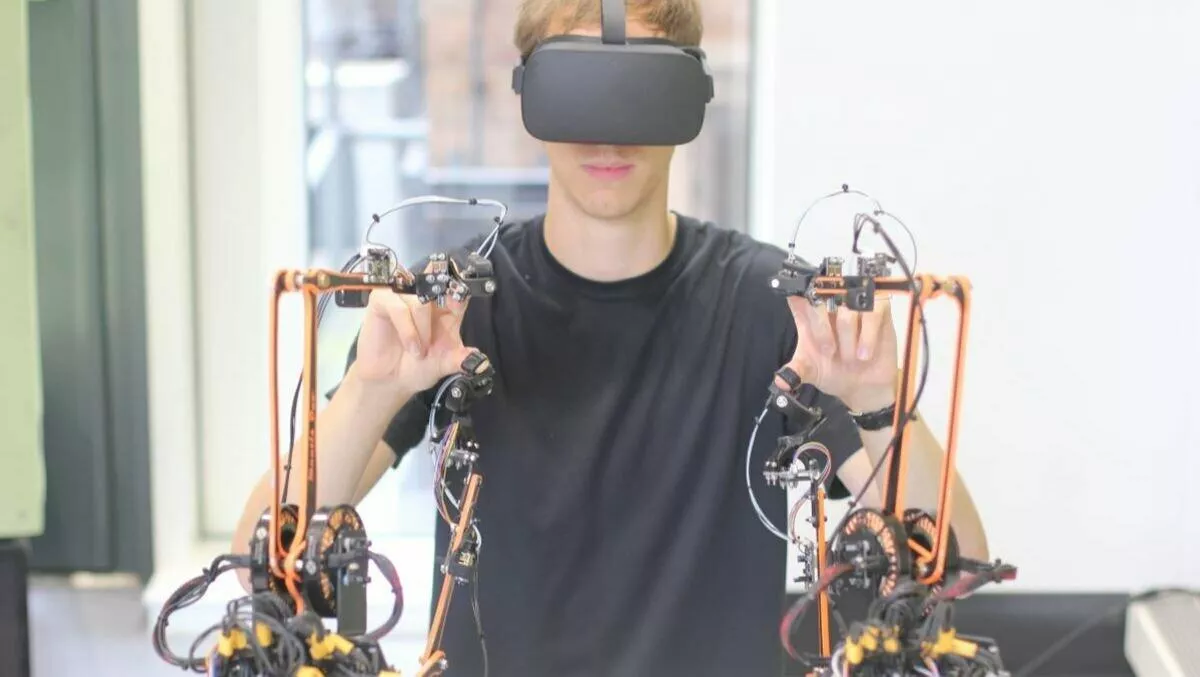Researchers at the University of Bristol in the United Kingdom have come up with a way to turn robotic arms into moving, feeling devices that provide touch feedback.
Nicknamed the ‘Mantis', researchers built a lightweight robotic arm for everyday users. The arm is described as the first system of its kind to deliver light, affordable and accessible haptic force feedback.
Haptic force is the robotic equivalent of a human's sense of touch. The researchers explain, “Not only can you touch a computer or other device, but the computer can touch you back. A force feedback is a particular kind that can provide force.
The Mantis arm could be used by anybody from secondary school age and upwards, and it's also cheaper because it uses brushless motors and alternatives to other expensive technologies often found in research labs.
The researchers say the Mantis could go hand in hand with technologies such as virtual reality.
“Humans already have a great sense of touch. Mantis expands on this innate ability by enabling people to touch and feel 3D objects, adding more depth to the VR experience,” explains lead researcher Dr Anne Roudaut.
“Imagine a user playing a game in Virtual Reality with Mantis attached to their fingers. They could then touch and feel virtual objects, thus immersing themselves both visually and physically in an alternative dimension.
Project Mantis also attracted the attention of Senmag Robotics, which could commercialise the technology.
The researchers hope the support will enable researchers to progress their design to market, starting with the production and testing of the first kits ready for release by the end of the year.
“We will be giving out the plans to allow anyone to build a Mantis,” says PhD student and researcher Gareth Barnaby.
“Because we are keen to make force feedback devices more widespread and not confined to research labs, we are also looking to produce some easy to build kits as well as pre-built versions that we will make available on the website.
Dr Roudaut and Barnaby, are in New Orleans presenting the Mantis at the User Interface Software and Technology (UIST) conference, the premier forum for innovations in human-computer interfaces that brings together people from graphical and web user interfaces, tangible and ubiquitous computing, and virtual and augmented reality.
